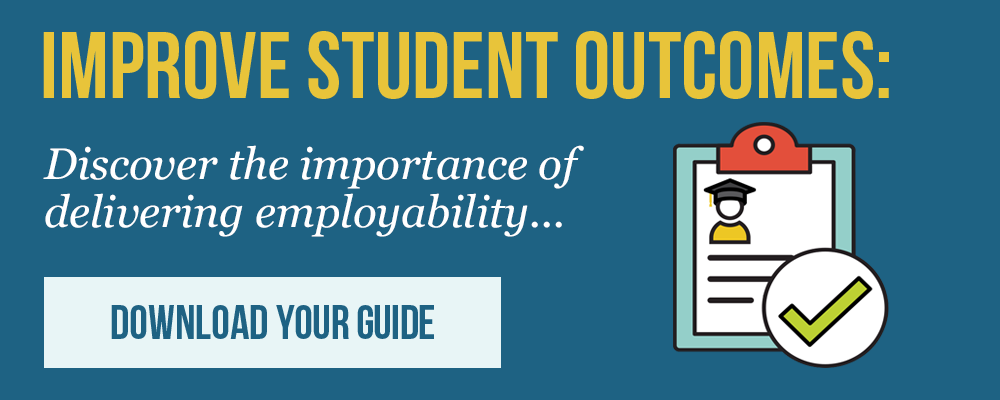
Enhancing student employment skills and employability has become (and will continue to be) a core objective for universities around the world. Education and employment will no longer be seen as two distinct functions or phases of a young person’s life, but a continuation of each other. With education being a precursor to employment, and employment a continuation of learning and development in the form of skill sets and experience. Moving towards this new paradigm requires university faculty, and students, to adopt a mindset geared towards cultivating employment skills as early on in university formation as possible, integrating these into learning outcomes. In part one of this blog series, we introduced several methods to achieve this. In part two, we offer further ways to enhance student employability from a faculty level.
1) Guide students towards greater self-awareness
In the context of employability, self-awareness relates to an individual’s ability to be aware of and communicate strengths and weaknesses, exhibit self-control, be accountable and manage emotions in difficult situations. These are attributes that greatly assist a graduate in their search for work and throughout their career. Social and emotional learning, as posited by the City and Guilds Alliance report on employability, develops self-awareness as does meditation, writing down goals, asking for feedback and completing psychometric tests, according to the Harvard Business Review. Encouraging your students to perform these activities can greatly facilitate the development of their self-awareness.
2) Assist learners in cultivating a strong online personal brand
Social media has made it easier for job seekers to find work, connect with employers and research their chosen career paths and industries. However, it has also made it essential for them to maintain a strong and respectable online brand. Just as students can use social platforms to glean information about employers, employers use social platforms to investigate their potential job candidates. As such, students need to cultivate a strong personal brand long before they begin the job application process. Provide students with the feedback and support they need to shape their online brand through one-on-one sessions or workshops.
3) Help students secure relevant work experience
Probably one of the most valuable bargaining chips for a graduate seeking employment is previous work experience. In fact, without any, a graduate has almost no chance of securing permanent employment. To improve student employability, faculty staff need to work alongside students to find and secure work experience for them or placements within a relevant industry, whether paid or unpaid, apprenticeships, volunteer or part-time work. Draw on personal contacts, alumni networks or industry partnerships to find the right placement for your students.
4) Encourage participation in extracurricular activities
Extracurricular hobbies are important for student development in several ways. First, they offer an outlet from the pressure of studying; second, they signal to employers that a job candidate is well-rounded. Furthermore, extracurricular activities can build skills development that other employability strategies have begun. For example, participation in sports develops teamwork skills; debating develops communication and analytical skills; art class fosters self-awareness. Ensure that all your students spend time pursuing activities that offer them both pleasure and the opportunity to grow.
5) Educate faculty about skills development programmes
Developing the right skill set to thrive in working life can only be executed by the students themselves. However, it’s the faculty’s responsibility to kickstart the motivation that will encourage students to take charge of their careers. In order to properly motivate and guide students in preparing for life after graduation, faculty staff need to be suitably familiar with the transferable skills required of prospective employees. Instilling employment skills in students is a relatively new quarry of higher education institutions and therefore it’s unlikely that your staff will have undergone employability “training” during their time in tertiary education. For this reason, it’s paramount that faculty staff are educated about the soft skills students need to become desirable job candidates. This capability building for staff, which could be achieved by completing a skills development programme themselves, will enable them to support students in their soft skills development.
Improve student employability to bolster institutional reputation
Raising institutional reputation and working towards university rankings is vastly expedited if your entire faculty works towards supporting the development of employment skills in its student body. Not only will destination metrics be improved, your university will become a more attractive place to study.
Curriculo’s Industry Engagement Programme (IEP) is a skills development programme tailored by industry leaders and recruitment experts to develop in students the transferable employment skills required by employers and in order to forge strong careers. Download our guide for more information about enhancing student employability.


